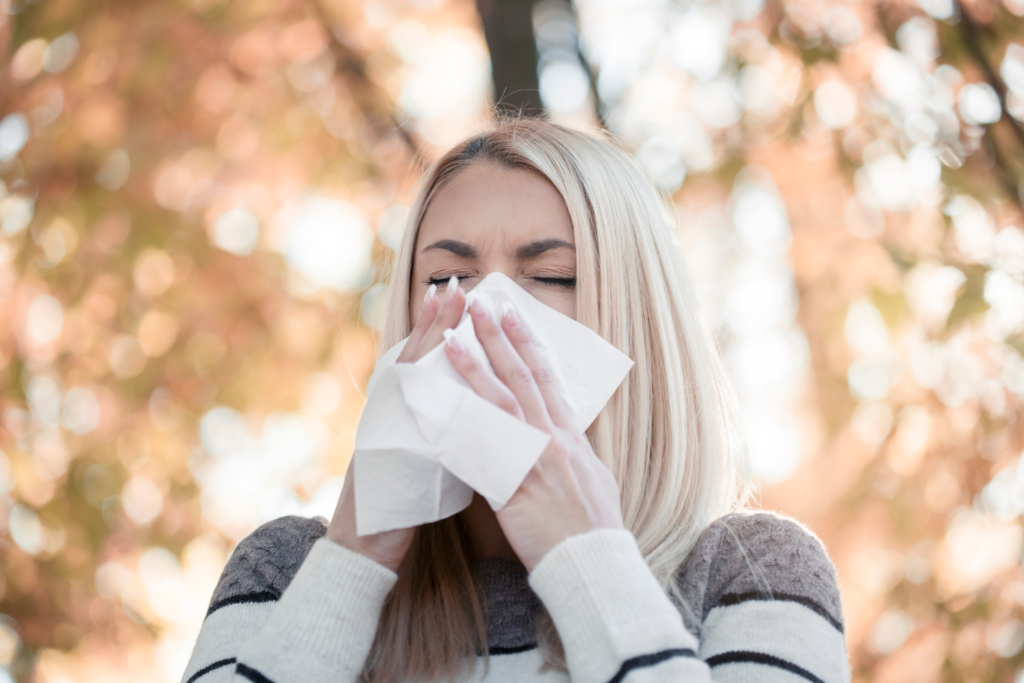Is it COVID, a cold, the flu or do I have seasonal allergies?

One of the unique characteristics of COVID-19 that has presented challenges for the public and medical professionals alike is the varying presentations of the illness. While some people experience serious complications such as pneumonia, pulmonary embolism (blood clot in lungs) or stroke, other folks have milder cases. These cases can make it difficult to differentiate from COVID-19 and other maladies such as seasonal allergies, influenza (flu) or common colds.
COVID-19
Most cases of COVID-19 have symptoms such as cough, fatigue, sore throat, new loss of sense of taste or smell, and fever, but not all. Diarrhea and nausea or vomiting can also sometimes occur with COVID-19. The new smell and taste loss experienced with COVID-19 frequently occurs without a stuffy or runny nose, which is not typical of seasonal allergies, influenza or common colds. Treatment is mostly directed at the associated symptoms and complications.
Allergies
Seasonal allergies do not cause fever, muscle aches and rarely sore throat, or new loss of taste or smell, and usually improve with anti-histamine medications. Common symptoms of seasonal allergies include, sneezing, itchy eyes and runny nose. Sneezing is not common with COVID-19.
Cold
The common cold typically has an associated cough, runny nose and sore throat, but is less likely to inflict muscle aches, fatigue or fever, and nearly never causes diarrhea, nausea or vomiting. Over-the-counter analgesics (pain relievers), decongestants and cold remedies are typical treatment options.
Flu
Flu, caused by virus influenza A and B, has the most similarities with COVID-19, though usually does not occur with new loss of taste or smell without a stuffy or runny nose. Viral testing typically is necessary to determine which virus is present, and there can be co-infection with influenza and SARS-CoV-2. COVID-19 is more likely to cause serious illness than flu.
The best way to fight viruses such as the flu or COVID-19 is to get vaccinated. Vaccines are safe and effective, and protect yourself and those around you. Both the Pfizer/BioNTech and Moderna COVID-19 vaccines have received full approval by the Food and Drug Administration (FDA) for those five years and older, and are the best way to prevent serious complications, hospitalizations and death from COVID-19.
Knowing the cause of your illness can be tricky since many share common symptoms. However, understanding what is making you sick is important since it will determine treatment and can help prevent spreading sickness to others. It is always best to contact your primary care provider or visit a walk-in clinic if you have questions about an illness.
Dr. Stephen Horras is a Family Medicine physician with advanced training in medical acupuncture at Island Primary Care – 24th Street Clinic. To schedule an appointment with Dr. Horras, call 390.293.3101.
Island Walk-In Clinic – M Avenue is open every day for minor illnesses and injuries. No appointment necessary.
